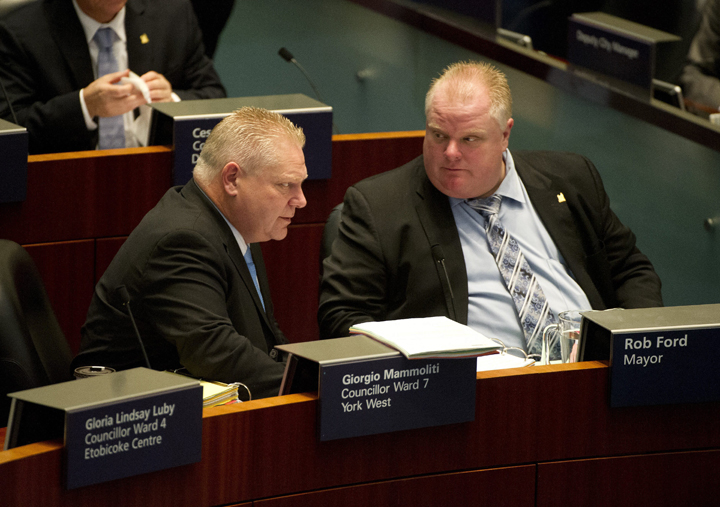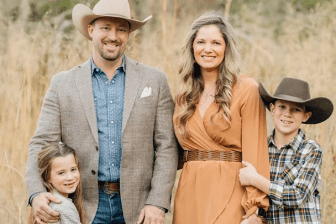Recently Ipsos Reid undertook an analysis of the potential Toronto mayoral outcome if an election were held involving various candidates and scenarios. Scenario #2 of 3 scenarios was most instructive because it pitted current declared candidates – incumbent Mayor Rob Ford, Councillor Karen Stintz, Former Councillor and City Hall Budget Chief David Soknacki—and a potential candidate, John Tory, against each other on a ballot for Mayor. Each one of these candidates is noted for being either a conservative or progressive conservative candidate in terms of their budget and fiscal views.

As a result, the runoff is really between conservatives and gives a fair understanding of who would stick with Mayor Ford as core voters in an election of a common field of candidates. In essence, this provides insight into a base of voters who, up until recently, appear to stick to the Mayor regardless of his public controversies. Some could suggest that this base of voters is pretty close to being the “Ford Nation” the Mayor and his brother often talk about; however, it’s likely that the antics of the past week of diminished at least some of that support.
All of the following numbers were gleaned from the opinion polling research just conducted among 655 Torontonians.
What’s striking about this is the geography of his support where Etobicoke is not where is highest degree of voters are located: York/East York (30 per cent) is followed by Scarborough (27 per cent), North York (22 per cent) and Etobicoke at 16 per cent – and with the old City of Toronto/downtown at 16 per cent.
In the scenario analyzed, the base of voters that stick with Mayor Rob Ford are as follows:
Size of voter commitment:
22 per cent
- Alberta to overhaul municipal rules to include sweeping new powers, municipal political parties
- Canada, U.S., U.K. lay additional sanctions on Iran over attack on Israel
- Trudeau says ‘good luck’ to Saskatchewan premier in carbon price spat
- No more ‘bonjour-hi’? Montreal mayor calls for French only greetings
Geographic area in Toronto:
York/East York: 30 per cent followed by Scarborough: 27 per cent, North York: 22 per cent, Etobicoke: 16 per cent and old City of Toronto/downtown: 16 per cent.
Income distribution:
$40,000 – $59,000: 28 percent followed by those under $40,000: 26 per cent, $60,000 – $100,000 and 21 per cent and $100,000 + 13 per cent.
Gender:
Male 26 per cent / Female 17 per cent.
Household:
With children 18 per cent/no children 22 per cent.
Age:
18-34 years old: 22 per cent, 35-54 years old: 20 per cent and 55+ years old 24 per cent.
Education:
Less than high school: 44 per cent, high school: 28 per cent, post secondary: 26 per cent and university: 17 per cent.
It should be noted that when Olivia Chow is added to the balance with all of the above candidates Mayor Ford’s support holds steady at 20 per cent – just down from 22 per cent in scenario #2.
In scenario #1 and that listed just the current declared candidates – Mayor Ford, Councillor Karen Stintz, former Councillor and City Hall budget chief David Soknacki – Mayor Ford’s support is at 24 per cent. This compares with scenario #2 where voter support is 22 per cent and scenario #3 where support is at 20 per cent. As such, the range of base voter support for the Mayor, as of approximately 10 days ago, range anywhere between 20 per cent and 24 per cent but could likely be pegged in the middle at 22 per cent given a “conservative” field to choose from on a ballot. There was no apparent shift in the demographics that was statistically relevant under any of these scenarios.
It should be noted that on each scenario Mayor Ford lost to another mayoral candidate by no less than 16 points Olivia Chow (36 per cent) and as high as 21 points (John Tory at 41 per cent).
John Wright is the Senior Vice President, Strategic Public Affairs Research and Managing Director at Ipsos Global Public Affairs.



Comments